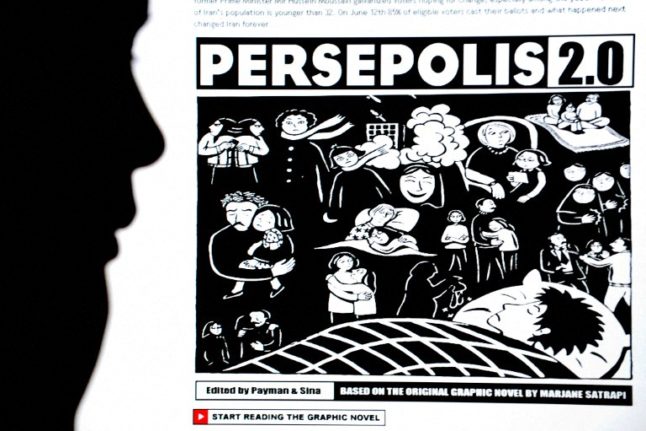On a night full of surprises, the festival’s gender-neutral acting prize was awarded to a nine-year-old, Spain’s Sofia Otero.
The young actress from Basauri in the Basque Country fought back the tears as she thanked the team behind “20,000 Species of Bees”, the feature debut from Spanish director Estíbaliz Urresola Solaguren.
El momento en el que Sofía Otero recoge el Oso de Plata de la Berlinale es ♥️ pic.twitter.com/zlNKL0crQZ
— Sonia Palomino (@soniapalomino) February 26, 2023
Otero won the prize for playing a transgender child, even though in real life she is not, something the director received some criticism for.
Selected among a pool of 500 children, Otero had no previous acting experience. But now her name will feature alongside that of other Silver Bear winners of the calibre of Michelle Pfeiffer, Nicole Kidman or Meryl Streep.
Critics have lavished praise on the film. Screen Daily, for one, predicted that “arthouse audiences worldwide should respond to the pathos, breadth and humanity of a film that takes a while to build but, when it does, never loses its grip”.
The Golden Bear top prize went to documentary “On the Adamant” by French director Nicolas Philibert. This comes more than 20 years after Philibert’s acclaimed education documentary “To Be and To Have”, is about a floating day-care centre for people with psychiatric problems on the Seine in Paris.
Thanking the jury, Philibert, 72, said “that documentary can be considered to be cinema in its own right touches me deeply”.
‘Invisible parameters’
Hollywood actress Kirsten Stewart, at 32 the youngest president in the festival’s history, said the jury had been asking themselves all week “what makes a movie a movie”.
They had set aside “invisible parameters” in awarding the Golden Bear, she said, because “when you focus too much on what something is you tend to lose track of what it does.
“This is a boundary-pushing festival and so it offers us the opportunity to be expansive in how we define those things, how we value works of art, how we categorise them,” she said.
There was more success for France as Philippe Garrel, 74, won the Silver Bear for best director for “The Plough”, a drama about three siblings from a family of puppeteers coping with the death of their father.
Garrel dedicated the prize to his children and to French-Swiss director Jean-Luc Godard, “a great master for many of us”, who died last September.
Second prize went to “Afire” from German director Christian Petzold, about a group of friends whose holiday retreat to the Baltic coast goes horribly wrong.
Variety called it “wincingly well-observed and acidly funny”, while the Hollywood Reporter said it was “a deceptively simple and straightforward but emotionally layered film”.
Coming in third was “Bad Living” by Portugal’s Joao Canijo, about several female members of the same family who run a dilapidated hotel and are also struggling with their relationships to one another.
Star power
“On the Adamant” offers an intimate glimpse into the lives of adults and their carers in the Parisian day-care centre, which puts an accent on offering them a creative outlet.
The film is “an attempt to overturn the image we have” of people with psychiatric problems, Philibert said. “The cliches are deep-rooted. The film tries to unravel them (but) there is a long way to go.”
The Hollywood Reporter praised the film’s “warmth and enthusiasm”, calling it “a portrait of several individuals who, despite their noticeable disabilities, are capable of producing original and moving works of art”.
French President Emmanuel Macron congratulated both Philibert and his subjects on the win, calling the film a “story of humanity and commitment”.
Documentaries are regularly selected in major international film competitions, but rarely win awards.
Last year, the Venice Film Festival awarded its Golden Lion to a documentary about the opiate crisis in the United States by Laura Poitras (“All The Beauty And The Bloodshed”).
After two years of a reduced format due to pandemic restrictions, the 11-day Berlinale got back in full swing this year, with A-listers such as Cate Blanchett, Helen Mirren and Steven Spielberg walking the red carpet.
The festival, which ranks alongside Cannes and Venice as one of Europe’s top cinema showcases, also marked the first anniversary of Russia’s invasion of Ukraine and highlighted anti-government protests in Iran with new feature films and documentaries.
There were 19 films from around the world vying for this year’s Golden Bear, which was awarded at a gala ceremony by a jury led by Stewart.



 Please whitelist us to continue reading.
Please whitelist us to continue reading.
Member comments